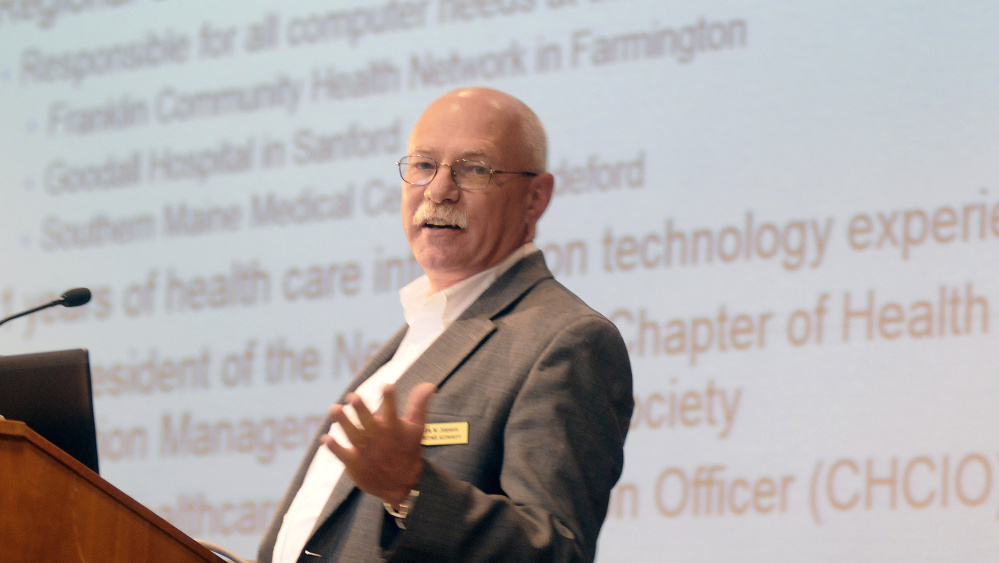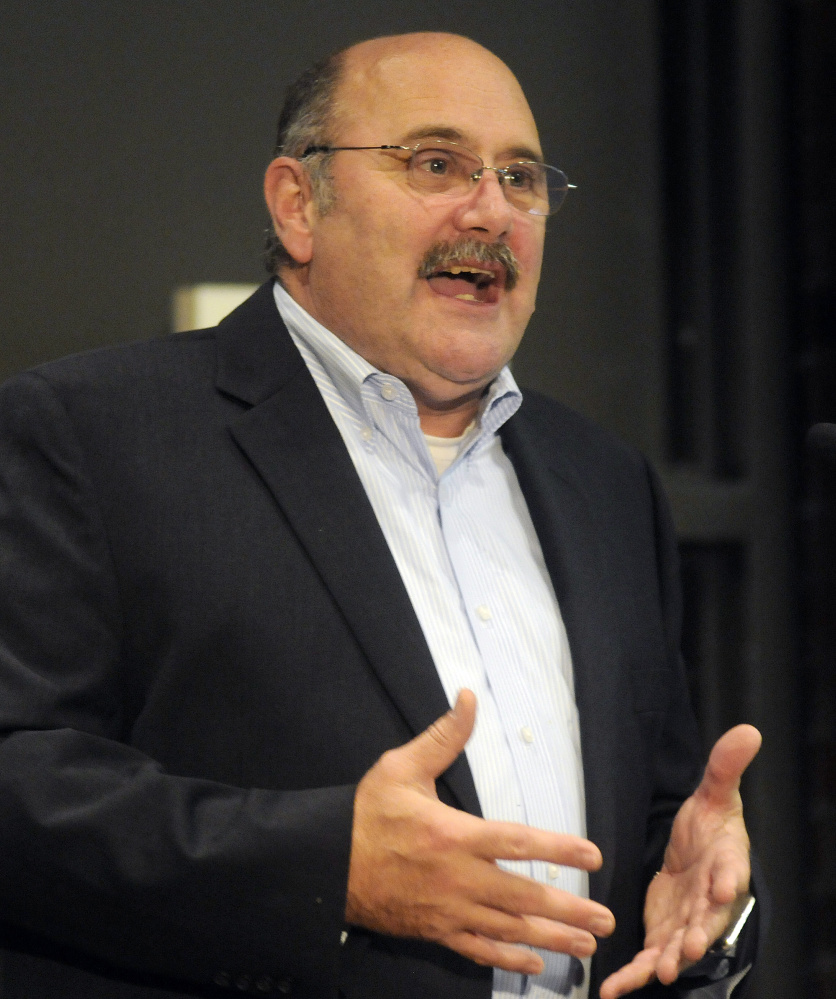AUGUSTA — Maine needs broadband Internet access to stay economically viable and for residents to stay connected, healthy and be able to complete their education.
That was the theme of a presentation Sunday on “What is Broad Band Internet Access, and Why Should We Care?”
It was presented by the University of Maine at Augusta’s Senior College and the College of the Arts and Sciences to about 25 people in the university’s Jewett Hall auditorium.
Peggy Schaffer, one of four co-chairs of the Maine Broadband Coalition and an advocate for small business at the Maine Secretary of State’s office, said increased connectivity and data upload speeds that match download speeds will allow more people to “work from where you live versus live from where you work.”
She cited examples of an Internet game developer who works from home in Clifton, outside Brewer, who has to spend 12-14 hours uploading material to his European colleagues.
She also talked of owners of small business who market on such sites as Etsy and who need to be able to have reliable, fast service to receive and send information.
Schaffer said the result of having broadband coverage throughout Maine would be as transformative for people and businesses as was the result of the Rural Electrification Act of 1936, which brought electricity to rural farms.
“What’s at stake is how we build our economy going forward,” Schaffer said, citing Islesboro’s decision to build its own network as a way to help keep its community thriving.
She showed a chart indicating that few people outside Maine’s urban centers have broadband service.
She said, “100 percent of our schools in Maine are connected at 100 megabytes; homes are not connected at anywhere near that speed.”
That becomes a problem when children go home and need to access the Internet to do homework.
Libraries too have fast speeds, a point she illustrated by showing a photo of people working on computers in their vehicles that were parked outside the Caribou Public Library.
She urged consumers to be vocal if they are not happy with how their broadband is operating and to support increased funding for ConnectME, which works to expand broadband access in the most rural, unserved areas.
Ralph Johnson, a member of the ConnectME Authority and chief information officer of Maine Health, gave a brief history lesson on the development of the computers, holding up first a punch card and then his camera memory chip, and talking about the leaps in capacity and miniaturization since about 1950.
“My iPhone is 100 times more powerful than the computer that put a man on the moon,” Johnson said.
He noted that ConnectME has changed its definition of broadband access to indicate the speed must be a minimum of 10 megabytes for uploads and downloads.
“We recognize that there’s always two sides to a conversation,” Johnson said.
He also pointed to a statistic showing that the fastest growing group on Facebook is composed of people over 65 years old.
“The computer gives us a way to stay in contact we didn’t have 20 years ago,” Johnson said. It’s also capable of helping people manage chronic disease at home and soon might be the vehicle to connect with doctors. “Again, we are going to need high speed Internet to do it,” he said.
Johnson talked about working to get broadband connections to hospitals, in particular to Franklin Memorial Hospital in Farmington, to allow fast transmission of data between them.
“Five years ago, LifeFlight could get to Central Maine Medical Center faster than (Franklin Memorial) hospital could send the image to the receiving doctor,” he said. Johnson said he solved the problem by getting a broadband grant for Franklin Memorial Hospital.
Dick Thompson, chief information officer of the University of Maine System, talked about one student’s concern that he could only do homework very early in the morning before others began to access the Internet provider system and slowed it down.
He said in the future, a broadband connection would allow a student taking a course at home to have a face-to-face experience with someone else as if they were both in the same classroom.
The next UMA Senior College Forum on the Future is scheduled for 2 p.m. Jan. 10, 2016, and will focus on “Young and Old — Learning and Working Together.”
Betty Adams — 621-5631
Twitter: @betadams
Send questions/comments to the editors.





Success. Please wait for the page to reload. If the page does not reload within 5 seconds, please refresh the page.
Enter your email and password to access comments.
Hi, to comment on stories you must . This profile is in addition to your subscription and website login.
Already have a commenting profile? .
Invalid username/password.
Please check your email to confirm and complete your registration.
Only subscribers are eligible to post comments. Please subscribe or login first for digital access. Here’s why.
Use the form below to reset your password. When you've submitted your account email, we will send an email with a reset code.